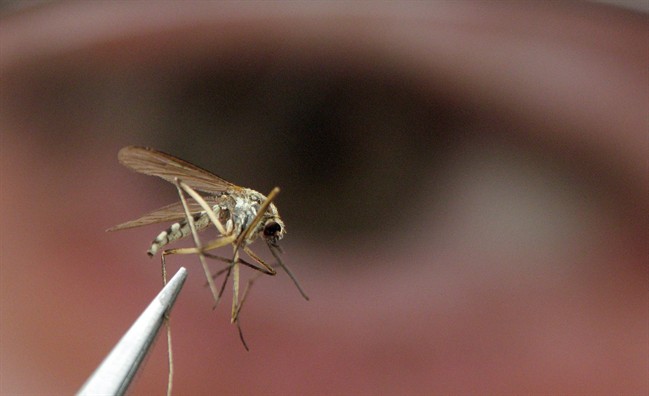Officials with the Middlesex-London Health Unit are urging people across the region to be vigilant, after confirming a human case of West Nile Virus this week.

The health unit has been unable to verify specifically where the patient received the infected mosquito bite since learning of the case on Wednesday, though it was in the London and Middlesex area.
Six infected mosquitoes have been tested this summer by the MLHU this summer, but this case marks the first infected human in the region since September of 2015.
The best defense is to protect against getting any mosquito bites, according to the infectious disease czar for the MLHU.

Get daily National news
“Most people aren’t thinking about mosquitoes at this time of year, but to have a report of a human case of West Nile Virus is a reminder that we still need to be vigilant and protect ourselves from mosquito bites,” said Mary Lou Albanese, Manager of the Infectious Disease Control Team, Middlesex-London Health Unit.
“We know West Nile Virus is present in our community, but generally people tend not to take the risk too seriously. The reality is that, although the chances are low, you can become very sick from a mosquito bite that is quite simple to prevent.”
Albanese recommends Londoners wear loose-fitting, light-coloured, long-sleeved tops and pants, but also use a DEET-containing bug repellant.
She also advises property owners work to keep areas free of standing water, which attracts mosquitoes. Culprits include eavestroughs, flower pots, children’s yard toys, and even tires. Experts also recommend emptying bird baths routinely, and adding a fountain or pump to any ornamental ponds to keep the water moving.
Worth noting, the MLHU says, is that mosquitoes are most active around dawn and dusk.





Comments